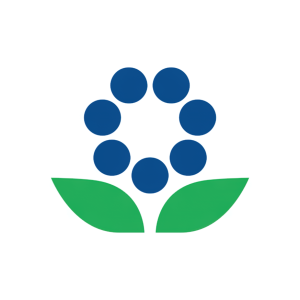PhosAgro CEO Andrey Guryev takes part in online conference as part of UN Climate Week
PhosAgro's CEO, Andrey Guryev, participated in the online conference 'COVID-19 as a Driver of the Circular Economy' during UN Climate Week, emphasizing the need for sustainable agricultural practices.
He highlighted the harmful effects of cadmium in fertilizers, a significant concern linked to cancer and environmental damage. PhosAgro produces fertilizers free of heavy metals, positioning itself as a solution to this issue amidst global regulatory improvements.
The conference addressed the rising importance of circular economies and the urgent need for eco-friendly farming solutions.
- PhosAgro produces fertilizers naturally free of heavy metals, addressing concerns over cadmium pollution.
- Increased global regulatory focus on environmentally friendly fertilizers could enhance market potential.
- The agriculture sector faces significant pollution challenges, which could impact public perception and regulation.
- Slow global regulatory changes may hinder the adoption of environmentally friendly fertilizers.
Insights
Analyzing...
MOSCOW, Sept. 29, 2020 /PRNewswire/ -- PhosAgro CEO Andrey Guryev took part in the online conference "COVID-19 as a Driver of the Circular Economy" as part of UN Climate Week.
Sponsored by the UN and New York City, the largest climate summit of the year is took place on 21–27 September. The online conference that took place on Thursday was organised by the Climate Partnership of Russian and En+ Group. Other participants in the event included the Assistant Secretary-General of the United Nations and Head of the New York Office of the UN Environment Programme, Satya Tripathi; the Executive Chairman of the Board of Directors of En+ Group, Greg Barker; the Director of the Hirdaramani Group, Aroon Hirdaramani; and the Senior Sustainability Director for Skanska, Myrrh Caplan.
In starting the discussion, the moderator, Faith Legendre, Circular Economy Solutions Specialist at the Aspen Institute, noted that a circular economy is based on resource efficiency, waste reduction and the conservation of natural systems. The world's population uses more than 100 billion tonnes of materials annually to produce various goods. By 2050, this amount will increase to 184 billion tonnes. A circular-economy model can create conditions for the conservation, restoration and reuse of vital resources.
Mr Tripathi, Assistant Secretary-General of the United Nations and Head of the New York Office of the United Nations Environment Programme, noted that 300 million tonnes of plastic enter the ecosystem every year. Today, the total amount of plastic is estimated at 9 billion tonnes, which exceeds the total biomass of humans on the planet.
According to Mr Tripathi, the COVID-19 pandemic has only exacerbated the problem of pollution, as personal protective equipment is polluting nature and harming the ecosystem. In addition, agriculture has a considerable polluting effect. For example, according to the UN,
"Worldwide, agriculture employs 1 billion people, who feed the remaining 7 billion people. Imagine the positive impact we would see if agriculture became more sustainable. We need to improve the efficiency of fertilizer use," stressed Mr Tripathi.
According to Andrey Guryev, CEO of PhosAgro, "It has recently become clear that there is growing concern throughout the world about harmful impurities, such as cadmium, in some phosphate-based fertilizers. This toxic substance enters food from the soil, causing cancer and mutations and harming both humans and the environment."
"The preferred way to reduce the risk of cadmium accumulating in the human body is to reduce the levels of cadmium in the fertilizers used. PhosAgro, fortunately, is one of the few producers in the world whose fertilizers are naturally free of heavy metals, which makes our fertilizers an essential part of the solution to this problem," emphasised Mr Guryev.
According to PhosAgro's CEO, several countries around world are taking important steps in the right direction, albeit slowly. For example, the EU imposes a limit on the cadmium content in fertilizers of 60 mg/kg; some national and supranational public health authorities responsible for nutrition and the environment recommend going even further towards stricter regulations on cadmium levels in fertilizers.
Mr Guryev noted that it is necessary to provide farmers with an opportunity to make an informed choice in favour of environmentally friendly fertilizers that do not harm the soil, and that ensure the safety of the agricultural and food products they are used to grow. To do this, countries must remove barriers to market access for environmentally friendly green products, developing the practice of intergovernmental green purchasing.
About PhosAgro
PhosAgro (www.phosagro.ru) is one of the world's leading vertically integrated phosphate-based fertilizer producers in terms of production volumes of phosphate-based fertilizers and high-grade phosphate rock with a P2O5 content of
The Company is the largest phosphate-based fertilizer producer in Europe (by total combined capacity for DAP/MAP/NP/NPK/NPS), the largest producer of high-grade phosphate rock with a P2O5 content of
PhosAgro's main products include phosphate rock, over 50 grades of fertilizers, feed phosphates, ammonia, and sodium tripolyphosphate, which are used by customers in 100 countries spanning all of the world's inhabited continents. The Company's priority markets outside of Russia and the CIS are Latin America, Europe and Asia.
PhosAgro's shares are traded on the Moscow Exchange, and global depositary receipts (GDRs) for shares trade on the London Stock Exchange (under the ticker PHOR). Since 1 June 2016, the Company's GDRs have been included in the MSCI Russia and MSCI Emerging Markets indexes.
More information about PhosAgro can be found on the website: www.phosagro.ru.
![]() View original content:http://www.prnewswire.com/news-releases/phosagro-ceo-andrey-guryev-takes-part-in-online-conference-as-part-of-un-climate-week-301139651.html
View original content:http://www.prnewswire.com/news-releases/phosagro-ceo-andrey-guryev-takes-part-in-online-conference-as-part-of-un-climate-week-301139651.html
SOURCE PhosAgro







